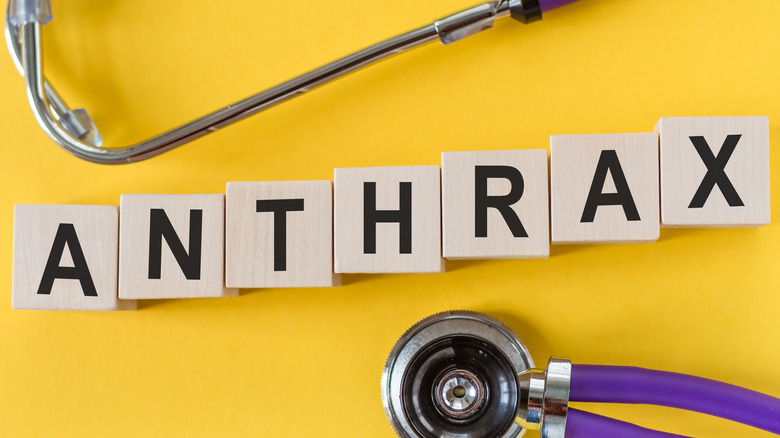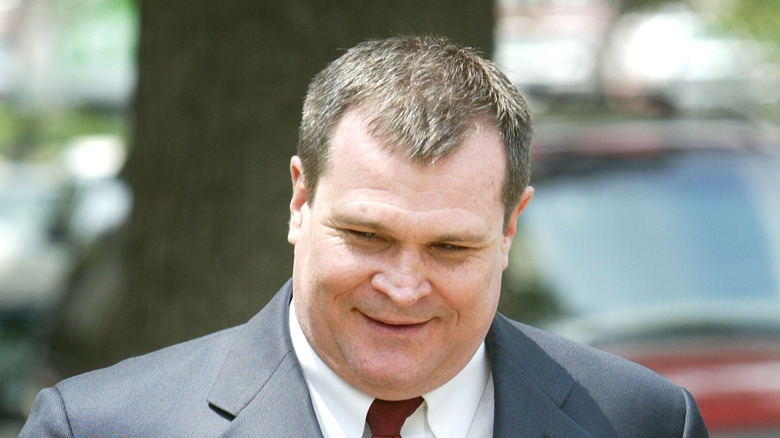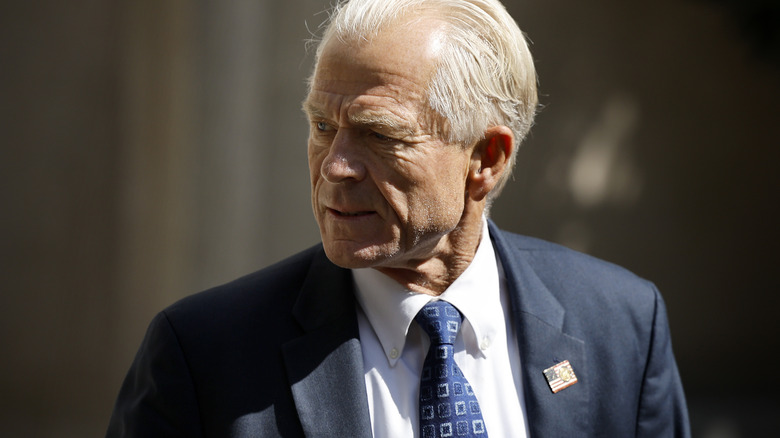Steven Hatfill Of The Anthrax Attacks' Controversial Connection To Trump
In what would become the worst biological attack in American history, a series of letters laced with Anthrax began showing up in the U.S. mail shortly after the terrorist attacks on 9/11, as chronicled by the FBI (in its section on Famous Cases & Criminals). Implicated in the attack was Army Dr. Steven Hatfill. (Hatfill has since been exonerated, according to The New York Times). In 2020, Hatfill showed up again in the media as an adviser on then-President Donald Trump's COVID-19 pandemic response team, per The Washington Post. It was then that the physician, pathologist, and biological weapons expert found himself once again under scrutiny (via NBC Chicago).
In 2010, the investigation into the American anthrax attacks was officially closed when the leading suspect, Army biodefense expert Bruce E. Ivins, died by suicide, per the Times. In 2008, the Justice Department settled a $2.8 million lawsuit over its allegations related to the Anthrax attacks, as reported by Reuters at the time. As a result of those attacks, sometimes known as Amerithrax, five people died and many more were sickened. The complete story of the 2002 American anthrax attacks, including Hatfill's alleged involvement and eventual exoneration, is told in the Netflix documentary "The Anthrax Attacks: in the Shadow of 9/11" (via Netflix).
Hatfill volunteered on the White House pandemic response team
Though he would later downplay his involvement, beginning in January 2020, Dr. Steven Hatfill reportedly volunteered as a medical adviser on the White House related to the federal government's COVID-19 pandemic response, based on a report from the House Committee on Oversight and Reform. Early on in the pandemic, the antimalarial drug hydroxychloroquine was thought to perhaps offer hope as a treatment, and the drug was given emergency use authorization from the U.S. Food and Drug Administration (FDA), according to NBC Chicago.
That authorization was later revoked after further trials revealed troubling heart side effects allegedly caused by hydroxychloroquine. After former President Donald Trump's own COVID-19 infection in October 2020, he spoke openly about taking the unproven drug with zinc supplements and continued to express his belief in its effectiveness (per CNN). As was later alleged in the Democratic-led House Select Subcommittee on the Coronavirus Crisis investigation into the federal COVID-19 response, Dr. Hatfill and former Trump aide Peter Navarro pressured FDA officials to change course on the disputed treatment.
Hatfill allegedly applied pressure on the FDA to reapprove hydroxychloroquine
According to the House Select Subcommittee on the Coronavirus Crisis report, Dr. Steven Hatfill and Peter Navarro (above) applied inappropriate political pressure on top FDA officials to reverse the agency's decision to disallow the controversial COVID-19 treatment, and to no longer impede access to hydroxychloroquine. In 2021, the House subcommittee, led by South Carolina Rep. James E. Clyburn subpoenaed Hatfill to supply documentation related to his time as a medical adviser in the Trump White House after he first refused to comply with a written request from the subcommittee some months earlier, according to the House Committee on Oversight and Reform website.
Hatfill denies this allegation. In his response to the report, Hatfill said, "We never wrongly pressured anyone. We simply followed the science and the overwhelming evidence as detailed in several studies available at the time," regarding hydroxychloroquine (via PBS NewsHour). Hatfill's involvement in the federal government's COVID-19 response is not the only issue that embroiled the virologist in controversy stemming from his association with the former president. Among other allegations, Hatfill also refocused his attention on unfounded election fraud claims stemming from the 2020 presidential election rather than on the pandemic, as the Committee on Oversight and Reform also notes.


